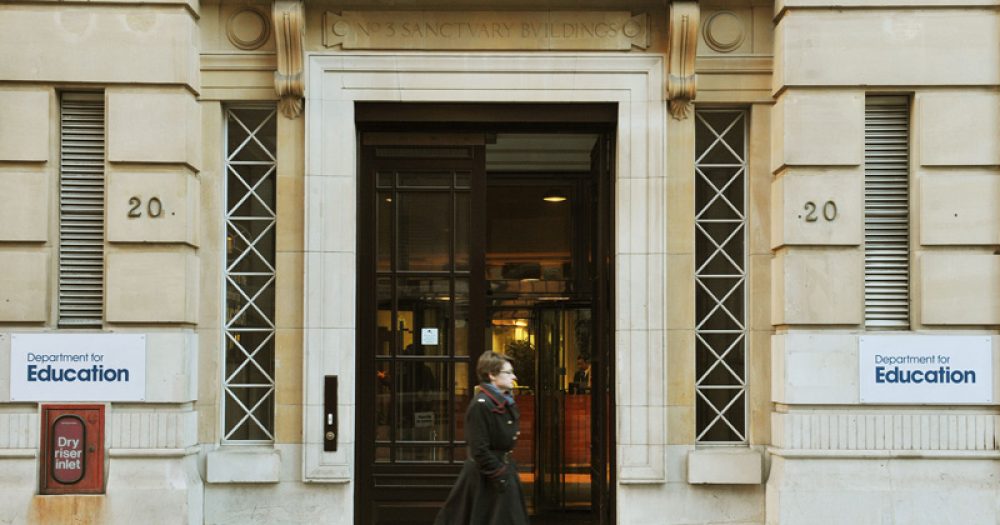Pupils will be given the choice of receiving a “valid mock grade” instead of their standardised centre-assessment grade under new plans for GCSE and A-level results announced by the Department for Education.
The government has finally confirmed its plans after the proposal to use mock exam grades was briefed out to some newspapers earlier tonight, announcing that pupils will be able to choose which grade they are issued via the appeals system.
In a statement issued late tonight, the DfE said students “could receive the higher result out of their calculated grade, valid mock grade, or autumn exam grade”, and claimed the move would “bolster fairness and give students security of ‘triple lock’ process”.
The DfE has also announced it has set aside £30 million in funding for schools and colleges holding autumn exams, which were announced earlier this year as a fallback for pupils who feel they haven’t got the grades they deserved from this year’s system of school-provided grades, standardised by exam boards.
The announcement comes amid a row over whether the system, which will see grades moderated based on schools’ historic outcomes, will be fair for all pupils.
In Scotland, which used a similar system, ministers were forced into a U-turn earlier today, promising to withdraw all grades that had been downgraded – around a quarter of those issues.
The DfE said tonight that under its new system, pupils “could accept their calculated grade, appeal to receive a valid mock results, or sit autumn exams to ensure the achievements of young people are recognised”.
The department also said Ofqual “has been asked to determine how and when valid mock results can be used to calculate grades”.
“All outcomes will hold the same value for universities, colleges and employers, building on the significant number of students who will still progress as a result of their calculated grades. Similar arrangements will apply to vocational and technical qualifications,” the department said.
Education secretary Gavin Williamson, who has been criticised tonight for his “eleventh hour” decision less than two days before A-level results day, said: “Every young person waiting for their results wants to know they have been treated fairly.
“By ensuring students have the safety net of their mock results, as well as the chance of sitting autumn exams, we are creating a triple lock process to ensure confidence and fairness in the system.”
He went on to say that “no-one wanted to cancel exams – they are the best form of assessment, but the disruption caused by Covid-19 meant they were not possible”.
“This triple lock system will help provide reassurance to students and ensure they are able to progress with the next stage of their lives,” he added.
However, the department still insisted tonight that centre-assessment grades were the “fairest possible approach in the absence of exams”, and that the grades students receive on Thursday “will be based on the judgement of their school or college, and have been moderated by exam boards to make sure the same standard is applied for all students, whichever school, college or part of the country they come from”.
Pupils who want to use a “valid mock exam result” will be able to do so through the appeals process, the DfE said. Individual candidates will have to notify their schools, which will then have to provide evidence of mock exam results to exam boards.
But Geoff Barton, general secretary of the ASCL school leaders’ union, said tonight that the “idea of introducing at the eleventh hour a system in which mock exam results trump calculated grades beggars belief”.
“The government doesn’t appear to understand how mock exams work,” he said.
“They aren’t a set of exams which all conform to the same standards. The clue is in the name ‘mock’. And some students will not have taken them by the time that schools were closed in March. So, this immediately creates the potential for massive inconsistency.
“Schools and colleges have spent months diligently following detailed guidance to produce centre-assessed grades only to find they might as well not have bothered. There is certainly concern about the standardisation process applied by the exam boards, but there are also good reasons for having this system in place because it ensures that this year’s grades are roughly in line with those of previous years, and this is important in terms of fairness to students over time.
“If the government wanted to change the system it should have spent at least a few days discussing the options rather than rushing out a panicked and chaotic response.”








For many years students have created and shared markschemes for the latest paper on websites such as The Student Room. As a result mocks based on real papers can not be trusted. Some centres create their own papers and grade boundaries which may be harsh or lenient. Some mocks take place in lesson times with later classes finding out about the paper.